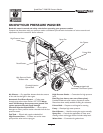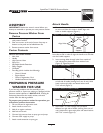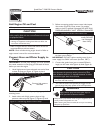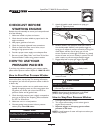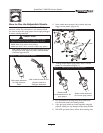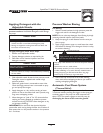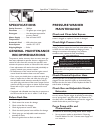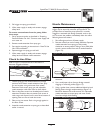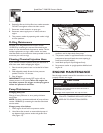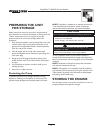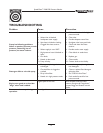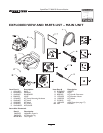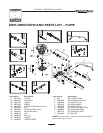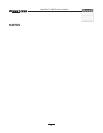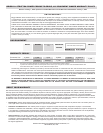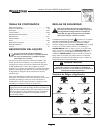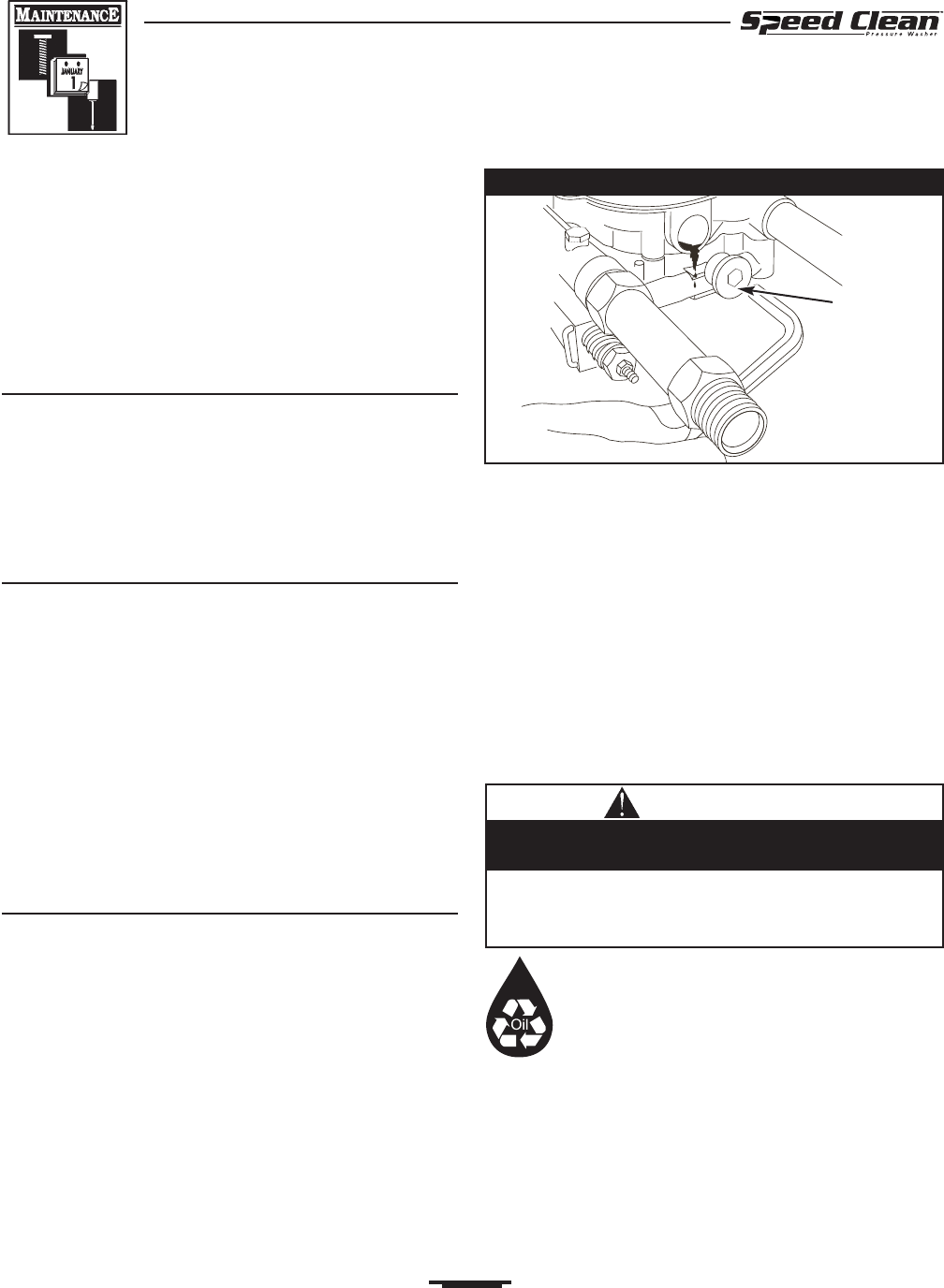
SpeedClean™ 2000 PSI Pressure Washer
13
6. Reinstall orifice and in-line filter into nozzle extension.
DO NOT overtighten orifice with allen wrench.
7. Reconnect nozzle extension to spray gun.
8. Reconnect water supply, turn on water, and start
engine.
9. Test pressure washer by operating with nozzle in high
and low positions.
O–Ring Maintenance
Purchase an O–Ring/Maintenance Kit, part number
191922GS by contacting the nearest authorized service
center. It is not included with the pressure washer.This kit
includes replacement o-rings, rubber washer and water
inlet filter. Refer to the instruction sheet provided in the kit
to service your unit’s o-rings.
Cleaning Chemical Injection Hose
If you used the chemical injection hose, you must flush it
with clean water before stopping the engine.
1. Place chemical injection hose in a bucket full of clean
water.
2. Slide adjustable nozzle forward to low pressure
position. Flush for 1-2 minutes.
3. Shut off engine.
IMPORTANT: Simply shutting OFF engine will not
release pressure in the system. When the engine has
shut down, squeeze the trigger on the spray gun to
relieve the pressure in the hose.
Pump Maintenance
Changing Pump Oil
Change oil every 50 hours or once yearly, whichever
occurs first.
NOTE: Purchase a premeasured bottle of pump oil, item
number 190586GS, by contacting the nearest authorized
service center.
Change pump oil as follows:
1. Drain engine oil and fuel from pressure washer.
2. Use a 8mm allen wrench to remove black pump oil
cap between high pressure outlet and garden hose
inlet (Figure 15).
3. Tilt pressure washer to drain oil into an approved
container until it drips slowly from pump.
4. Tilt pressure washer in opposite direction and empty
premeasured pump oil bottle into same opening (a
small funnel may be helpful).
5. Install black pump oil cap and tighten firmly.
6. Set pressure washer in upright position.Add fuel and
engine oil.
ENGINE MAINTENANCE
See the engine owner’s manual for instructions on how to
properly maintain the engine.
KEEP OUT OF REACH OF CHILDREN. DON'T
POLLUTE. CONSERVE RESOURCES. RETURN
USED OIL TO COLLECTION CENTERS.
Oil Cap
Figure 15 - Changing Pump Oil
• Used motor oil has been shown to cause skin cancer in
certain laboratory animals.
• Thoroughly wash exposed areas with soap and water.
Avoid prolonged or repeated skin contact with used
motor oil.
CAUTION



